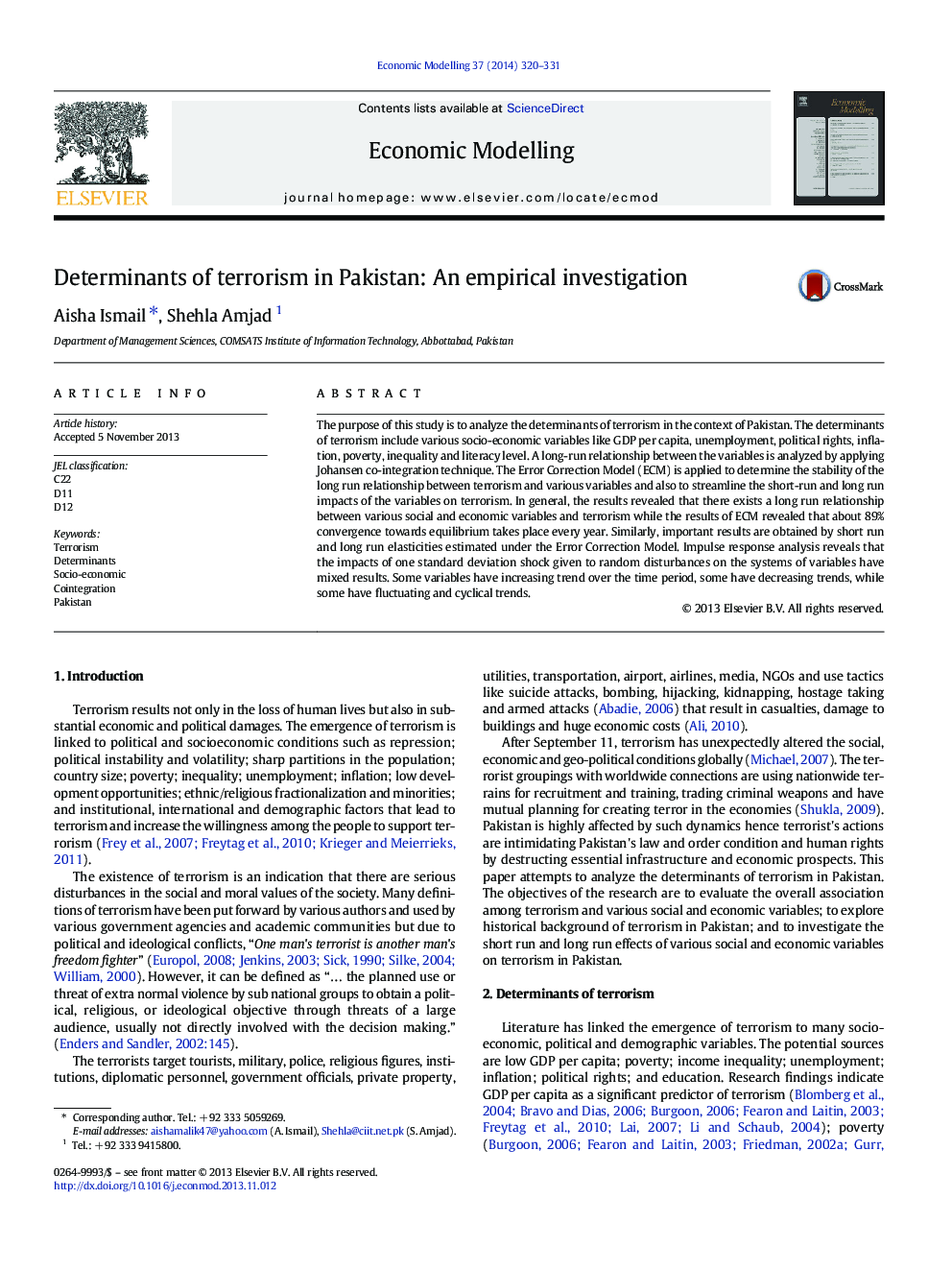| Article ID | Journal | Published Year | Pages | File Type |
|---|---|---|---|---|
| 5054554 | Economic Modelling | 2014 | 12 Pages |
â¢Investigates the long run relationship between terrorism and its determinantsâ¢Estimates the long run relationship through Johansen cointegration techniqueâ¢Results show that there exists a long run relationship between variables.â¢Inflation, GDP per capita, poverty and political rights are significant in the short run.â¢Inflation, GDP per capita, poverty and literacy rate are significant in the long run.
The purpose of this study is to analyze the determinants of terrorism in the context of Pakistan. The determinants of terrorism include various socio-economic variables like GDP per capita, unemployment, political rights, inflation, poverty, inequality and literacy level. A long-run relationship between the variables is analyzed by applying Johansen co-integration technique. The Error Correction Model (ECM) is applied to determine the stability of the long run relationship between terrorism and various variables and also to streamline the short-run and long run impacts of the variables on terrorism. In general, the results revealed that there exists a long run relationship between various social and economic variables and terrorism while the results of ECM revealed that about 89% convergence towards equilibrium takes place every year. Similarly, important results are obtained by short run and long run elasticities estimated under the Error Correction Model. Impulse response analysis reveals that the impacts of one standard deviation shock given to random disturbances on the systems of variables have mixed results. Some variables have increasing trend over the time period, some have decreasing trends, while some have fluctuating and cyclical trends.
